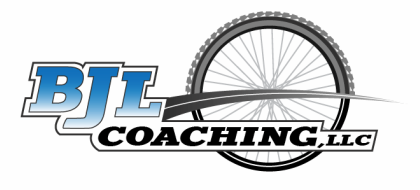|
Fueling. Nutrition. Two terms that are thrown around seemingly interchangeably. I'm certainly guilty of this myself. I've written to my athletes about dialing in their ride, race, event nutrition strategy but also about their fueling strategy. For best performance and more importantly, health, it’s perhaps best to consider these two terms independently.
Perhaps cliché, "reframing" how one approaches terms or situation is often very helpful. The podcast that I linked below from Fasttalk certainly helped me to consider these two terms in a different "frame." Within the first few minutes of the listen a light bulb went off. Fueling: what you're eating before, during, and after your workout for performance. Nutrition: what you're eating in general. Some of it will be for performance, but the vast majority of it should be focused on your health and wellness as a human being. And then we talk about "diets." For many, this elicits thoughts of terms like: high-fat, low carbs; the grapefruit diet; keto diet; the Hollywood diet; see food diet (you see food and you eat it); etc. My approach to the word diet, that is perhaps more "scientific", is that your diet is the compilation of all that you eat and drink. Then you may be practicing a specific goal based on ratios of macronutrients (fat, protein, carbohydrates), or eating x amount of specific foods per day, excluding specific foods, etc. This episode of Fasttalk: Find Balance Between Nutrition and Fueling https://www.fasttalklabs.com/fast-talk/find-balance-between-nutrition-and-fueling/ does a great job of clearing up these three terms and providing a framework for a very clean approach. One great concept to consider is that what works well for fueling is not necessarily "healthy." Just because it's athletic food or drink, doesn't mean it's good for you, and may be quite unhealthy when you're not exercising. One area I've modified my diet over the past decade is to not go for that energy bar as my mid-afternoon snack. My favorite go-to was loaded with over 20 (some flavors 30) grams of sugar. Works great as fuel for my long rides, and it's convenient for sure, but not the best snack when off the bike. Instead, now I go for a piece of fruit and maybe some peanut butter on organic corn cakes. Or if I'm in a pinch time-wise, I found some great low or no sugar organic protein bars that aren't loaded with Aspartame but are filled with healthy fats and plant based protein. Even though they're less than 200 calories (and no, I'm not counting calories), it's a very nutritious snack. The result? I find I am satiated and able to hold until my next meal or whole-food snack. I'm not hungry again in 30-60 minutes as I was in the past with foods loaded with simple, or at least not very complex, sugars. Likewise, what's very healthy for you might not be great fueling. I love when Coach Connor comments that a kale salad loaded with vegetables might be very healthy, it's not going to give you good fuel for training or racing. So mix it up, fuel up when you're going to be training or racing. When you're not training that day, your diet may shift quite a bit to focus more on "healthy" eating. In an upcoming post I'll be linking some great nutrition resources that I've come across and shared with my athletes over the years. I find they break it all down and really simplify things. If you have an comment, question, idea for a post, or random thought, please comment below or send me an e-mail. Until then, drink your water and think about what you're putting in your body. Make some small changes, create habits, and then make the next small change. You can do it! Cheers, Coach Brian
0 Comments
Your comment will be posted after it is approved.
Leave a Reply. |
Categories
All
Coach B.L.Coach B.L. is the head coach at BJL Coaching and an avid racer and cycling enthusiast himself. Archives
July 2024
|

 RSS Feed
RSS Feed